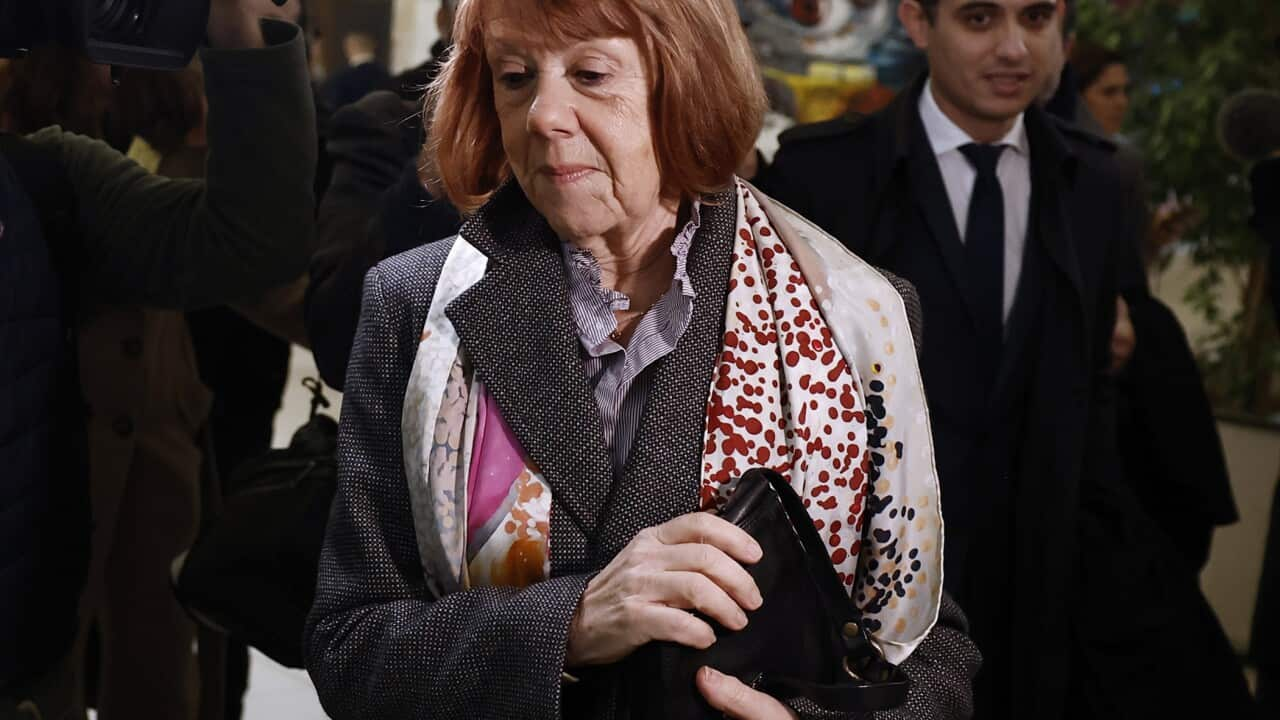This article contains references to rape.
Throughout the French trial that horrified the world and turned victim-survivor Gisèle Pelicot into a symbol of courage and resilience, she has carried a small but distinct link to Australia — and in particular to First Nations culture.
On Thursday, a , after he pleaded guilty to drugging her repeatedly for almost a decade to rape her, while also inviting dozens of strangers to rape her unconscious body while filming the abuse.
“I am a rapist like the others in this room,” he said during testimony, saying all the strangers he invited into his house knew his now ex-wife was unaware of what was happening to her.
Dominique Pelicot’s 50 co-defendants — many of whom denied the charges, saying they thought their actions were consensual — were also found guilty of rape, attempted rape or sexual assault.
Pelicot waived her right to anonymity throughout the trial, explaining that she hopes “all women who are victims of rape can say to themselves, ‘[Pelicot] did it, so we can do it'”.
“I don’t want them to feel ashamed anymore. It’s not for us to feel shame — it’s for them (abusers),” she said. “Above all, I’m expressing my will and determination to change this society.”
Gisèle Pelicot wore a scarf made by a First Nations artist
As Pelicot, 72, attended the court for the sentencing hearing, she wore — as she has for much of the trial — a scarf designed by Martu artist Mulyatingki Marney.
The scarf depicts saltwater pools at Wilarra, near Marney’s home, known for their healing qualities.
Gisèle Pelicot wearing the scarf at the court house on Thursday. Source: AAP, AP / Lewis Joly
It was purchased and sent to Pelicot earlier this year by the Older Women’s Network NSW, an organisation that says its mission is to “promote the rights, dignity and wellbeing of older women” and was “born out of a necessity to have the voices of older women heard”.
The group’s members collected donations among themselves to purchase the scarf, sending it alongside a note translated into French to Pelicot’s lawyer, explaining its significance.
The Guardian reported Pelicot’s lawyer, Stéphane Babonneau, saying last month that Pelicot was “very touched to receive the scarf”, noting how far solidarity on the issue of gendered violence was felt.
“There is a connection that unites women across the world in standing up against violence against women, and particularly sexual violence,” Babonneau said at the time.
Leaving court in Avignon, France, in November, Pelicot said: “I’m very honoured to wear it.”
Older Women’s Network CEO Yumi Lee said it was a “surreal moment” on Friday morning when she looked up news about the trial and saw the scarf being worn by Pelicot.
The scarf depicts saltwater pools at Wilarra, which are known for their healing qualities. Source: AAP, ABACA / Coust Laurent/PA
‘Rage and compassion’
Speaking to ABC Radio, Lee explained how, when the network first found out about Pelicot’s case, they knew it would stir up “feelings of rage and compassion” for her among their followers on social media, given the prevalence of abuse and sexual assault among women.
“A lot of older women carry that trauma,” she said. Lee said the network asked how could “channel this feeling that they have in an act of solidarity for [Gisele].”
“That was when the idea of the scarf [emerged]; something that is tangible, that she can use, when she sees, she knows that those of us thousands of kilometres away from France are sending her our love and our support and that we can feel her pain.”
Last month, Lee told NITV that she and the group’s other members wanted to send Pelicot something that symbolised strength, resilience and resistance, and explained why they specifically chose a piece by a First Nations artist.
“It is symbolic of the fact that First Nations women have endured hundreds of years of violence and suffering, including sexual violence — and yet, they persist to fight for the future,” she said in November.
“We want her to have something which is linked to the 60,000 years of history — that unbroken connection with the human spirit which we want her to feel nurtured by.”
On Friday, Lee invited Pelicot to travel to Australia to meet Marney and the women who donated money to purchase the scarf.
— With additional reporting by the Australian Associated Press
If you or someone you know is impacted by sexual assault, call 1800RESPECT on 1800 737 732, text 0458 737 732, or visit . In an emergency, call 000.


